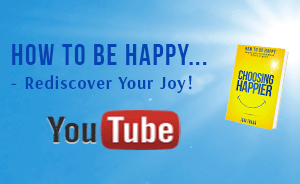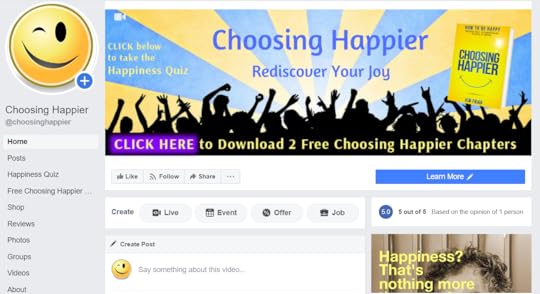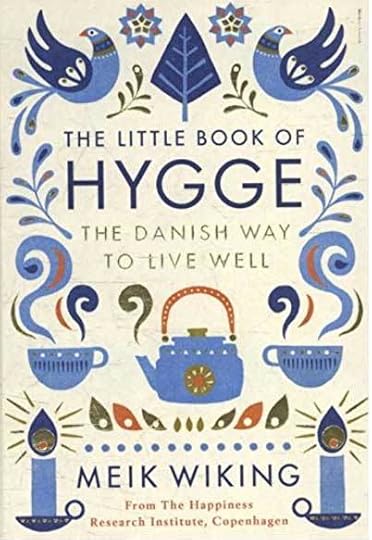Jem Friar's Blog
April 8, 2020
Intermittent Fasting To Protect Against The Coronavirus
Intermittent fasting refers to reducing the amount of time during the day or week within which we can eat food or to the amount of calories that we consume on particular days. The reason for doing so is that if the body has an extended rest period between foods, then it can regenerate & heal itself much more effectively on a daily basis. This can improve our health, immunity & wellbeing quite strikingly.
In my own experience, I have found the daily time restriction of food consumption to be the easiest to do & the most effective. This is often referred to as the 16:8 style of intermittent fasting, where we are able to consume foods just within an 8 hour window each day.
Why Intermittent Fasting Could Be Useful With The Coronavirus
Please accept YouTube cookies to play this video. By accepting you will be accessing content from YouTube, a service provided by an external third party.
If you accept this notice, your choice will be saved and the page will refresh.
Accept YouTube Content

Learn more about foods & supplements that could be useful for you on the Nutritional supplements, diet and the coronavirus blog post.
Intermittent Fasting & Viruses
When facing a viral pandemic like the present Coronavirus outbreak, intermittent fasting can be really helpful for 3 reasons:
It Boosts The Immune System
It Helps The Body To Heal
It Enables People To Eat Less
Obviously, the first two benefits are helpful because they can reduce the likelihood that someone will get a severe virus but it could also help people to overcome viruses if they catch them.
The third benefit is helpful in this time of global pandemic because an extended period of lockdown could result in there being less food available.
How to do 16:8 intermittent fasting correctly
Essentially, to do this properly, all one needs to do is eat within an eight hour window of opportunity each day. It is necessary to avoid consuming any foods or drinks that contain sugars or protein (including milk), outside of this time.
The easiest way to do this for most people is by dropping breakfast – only starting to eat at midday & then finishing eating before 8pm. For other people they may wish to start eating earlier & then end earlier. The great thing about this practice is that you can experiment & set it up in the way that works best for you.
In practice, a 16:8 day will probably mean that you only have 2 meals per day instead of 3, which is actually a much healthier way for adults to eat.* It isn’t necessary to make these meals much larger to compensate for this & it is best to avoid snacking between these meals too.
* Intermittent fasting is not recommended for children under 16, as they require more nurtition throughout the day to maintain their growth & generally higher energy levels.
Boost your Wellbeing & Resilience - Get Free Access to the Choosing Happier Audiobook.
There are many tools that would support people to be more resilient in my Choosing Happier book. In this unprecedented time with so many people facing emotional, emotional & finacial challenges, I have made the Choosing Happier audiobook free & the e-book is at it’s minimum price, so that more people can have access to this useful info. You can get all of the details here.
(Watch the video for more information).
Please accept YouTube cookies to play this video. By accepting you will be accessing content from YouTube, a service provided by an external third party.
If you accept this notice, your choice will be saved and the page will refresh.
Accept YouTube Content

The post Intermittent Fasting To Protect Against The Coronavirus appeared first on Choosing Happier.
Nutritional Supplements, Diet and the Coronavirus
I feel that it is really important to share this information because it could be incredibly helpful to so many people at this time. We have become so accustomed & conditioned to think that we need a magic pill or injection to enable us to get through illnesses, that we have ended up in an unnecessary state of powerlessness. At present, we do not have either pills or vaccines that can help us recover from Covid-19, only emergency medical equipment that may help us to survive.
Believing in this paradigm means that we have to wait for a year, or so, until a coronavirus vaccine is invented or hope that if we get Covid-19, that we are lucky enough to survive it. In fact, our bodies have an incredible natural capacity to fight & overcome viruses such as the coronavirus – indeed, our immune systems are the only things that have enabled people to overcome Covid-19 so far.
Our immune systems have developed over 1000s of years to protect our bodies against new viruses. (At the same time, the viruses have been constantly mutating in an attempt to get past our defence systems). As such, our bodies have an innate capacity to identify & destroy these viruses. For sure this is a totally new virus that is very contagious & can be fatal to an unexpectedly high proportion of the population, yet people are recovering from the illness which means that their bodies have developed the capacity to do so. The main differences between those who more easily overcome this virus & those who become very ill or die is how strong their immune systems are, how heavy their viral load is & if their bodies are already compromised by another illness.
Our Immune Systems Are Our Main Weapon Against Covid-19
There are 2 parts to our immune system:
The Innate Immune System – this is how our bodies instantly react to pathogens.
The Acquired or Adaptive Immune System – this is the aspect of our immune system that learns to respond to new threats.
Having a strong immune system is therefore invaluable for our initial response to the coronavirus & in how our bodies learn how to overcome it. There seem to be some factors that will increase people’s susceptibility to the virus such as (biological*) age, gender (more men are affected), hypertension, diabetes & some other preconditions but similarly, there are factors that can weaken our immune systems e.g. poor diet, poor sleep, stress & lack of exercise.
*A person’s biological age can be higher or lower than their actual age, depending on how well they have looked after their health & wellbeing.
The good news is that we can strengthen our immune systems!
By improving our diet, sleep, exercise & state of emotional wellbeing, we can improve our immune response. In this blog post & the 3 videos below, I am going to focus on how we can boost our immune systems with diet & nutritional supplements, as these can be particularly effective in the short term. The first of these videos looks at diet, the second at supplements that can support your innate immune system to repel the virus & the third one looks at what supplements might be helpful for your adaptive immune system response to support your body to overcome the virus.
For useful nutritional supplements & natural remedy suggestions that could be really helpful for overcoming the Covid-19 virus, you can download a pdf with all the recommended suggestions by clicking the green button at the bottom of this page.
N.B. Whilst these supplement & diet suggestions may be useful in helping you to overcome this virus, it is always essentail to get medical advice & support if you become very ill with covid-19.
Healthy Eating To Support Your Immune System
Please accept YouTube cookies to play this video. By accepting you will be accessing content from YouTube, a service provided by an external third party.
If you accept this notice, your choice will be saved and the page will refresh.
Accept YouTube Content

Good Diet & the Coronavirus
Diet is your first line of defence at a time like this. In it’s simplest form, the best thing to do is increase your fresh fruits & vegetables which have vitamins, minerals, enzymes & phyto-nutrients that can all support your immune system & your body to stay strong & healthy.
At the same time, there are certain foods that it would be wise to greatly reduce or emove from your diet, as these negatively impact your immune system. These include: sugar, carbs, alcohol, wheat, meat, eggs & dairy.
But it will not be enough to rely just on food as much of our produce can be low in the vital nutrients due to decades of over farming.
The timing of when you eat can also have a big impact on your immunity & health. I will write another blog post about the value for adults to intermittent fast that addresses this.
Supplements To Help Protect Against The Coronavirus
Please accept YouTube cookies to play this video. By accepting you will be accessing content from YouTube, a service provided by an external third party.
If you accept this notice, your choice will be saved and the page will refresh.
Accept YouTube Content

Basic Supplements & the Coronavirus
To improve your immune system’s innate response, there are some basic supplements that it would be helpful for you to be taking daily. They include:
Vitamin C (3g + daily)
Zinc (25-50mg daily)
Vitamin D3 (2000-5000ius)
Ginger tea
Lemon balm tea
Thyme tea
If you actually become ill with Covid-19 it could help you to take more supplements & at higher doses (see video & information below) to support yourself whilst also seeking medical support & advice.
Nutritional Supplements To Help When Fighting Covid-19
Please accept YouTube cookies to play this video. By accepting you will be accessing content from YouTube, a service provided by an external third party.
If you accept this notice, your choice will be saved and the page will refresh.
Accept YouTube Content

Download Your Natural Remedies Sheet
Advanced Supplements To Support With Overcoming The Coronavirus
These suggestions are for if you actually become ill with Covid-19. In this case, you will need to take more supplements & at higher doses to support your immune system. Download full recommendations on a pdf by clicking the green button.
N.B. Always seek medical support & advice as well.
Medical Support with the Coronavirus
If you become seriously ill with the coronavirus it is incredibly important that contact the NHS health line to see if you need to be sent to the hospital & be given the latest medical advice on what you should do. You can ring them directly in the UK on 111.
It is, of course, still very important to practice meticulous hygiene, to social distance & self-quarantine if needed too. In this way, we are less likely to spread &/or catch the disease or to contribute to the overwhelming of our amazing health service.
Please follow the latest Government guidelines for the most recent advice about hygiene, NHS services, testing, etc. https://www.nhs.uk/conditions/coronavirus-covid-19/
The post Nutritional Supplements, Diet and the Coronavirus appeared first on Choosing Happier.
April 7, 2020
Health & Wellbeing Support with the Coronavirus
My intention on these blog posts is to share some useful information & suggestions that will hopefully be helpful to people in this challenging time of the Covid-19 pandemic. Apart from being a Wellbeing & Resilience Coach, I have also trained in Naturopathy & various forms of alternative therapies & bodywork. I have been in this fascinating field for over 30 years, so I have a lot of valuable understandings & knowledge that could be helpful at this time.
These blog posts provide more information & insights, than I am able to share on the short videos that I have created. I hope that they are helpful for the health wellbeing & resilience of all who read them in this challenging time.
Wellbeing and Resilience for the Coronavirus Pandemic – Support Videos
I have created a series of videos to support people with their physical and emotional health, as this crisis continues. You will be able to find and watch the videos on the “How To Be Happy” YouTube channel https://www.choosing-happier.com/YT or on the Choosing Happier Facebook page.
Please accept YouTube cookies to play this video. By accepting you will be accessing content from YouTube, a service provided by an external third party.
If you accept this notice, your choice will be saved and the page will refresh.
Accept YouTube Content


There are also a lot of fun and useful well-being videos that can improve your resilience & wellbeing too. These can be found in the “Happy Monday Tips” playlist on the YouTube channel.

Get Free Access to the Choosing Happier Audiobook.
There are many tools that would support people to be more resilient in my Choosing Happier book. In this unprecedented time with so many people facing emotional, emotional & finacial challenges, I have made the Choosing Happier audiobook free & the e-book is at it’s minimum price, so that more people can have access to this useful info. You can get all of the details here.
(Watch the video to the left for more information).
Please accept YouTube cookies to play this video. By accepting you will be accessing content from YouTube, a service provided by an external third party.
If you accept this notice, your choice will be saved and the page will refresh.
Accept YouTube Content

The post Health & Wellbeing Support with the Coronavirus appeared first on Choosing Happier.
July 12, 2018
The Book of Joy – Book Review
The Book of Joy is a truly heart warming and profound read. The book was created out of a series of conversations between the Dalai Lama and Bishop Desmond Tutu when they met for a few days in Dharamsala. Their reason for meeting was to honour their friendship and to attempt to clarify and create a path for people to follow to find more joy in life. Both these men have had to face incredibly challenging situations and yet have come through them with a profound state of compassion, kindness and wisdom.
Please accept YouTube cookies to play this video. By accepting you will be accessing content from YouTube, a service provided by an external third party.
If you accept this notice, your choice will be saved and the page will refresh.
Accept YouTube Content

The Book of Joy can be bought directly from Amazon.com here or from Amazon.co.uk here.
The post The Book of Joy – Book Review appeared first on Choosing Happier.
July 11, 2018
The Year of Living Danishly – Book Review
This may just be the most entertaining book about life in Denmark that you can read. I recently listened to The Year of Living Danishly book on audible. Not only was it informative, it was laugh-out-loud funny at times so I figure that I should review the book to inspire you to read or listen to it too.
Please accept YouTube cookies to play this video. By accepting you will be accessing content from YouTube, a service provided by an external third party.
If you accept this notice, your choice will be saved and the page will refresh.
Accept YouTube Content

The book chronicles the challenges and adjustments that a young British couple faced when moving to Denmark for a year. Helen Russel, the writer, was a journalist and a Londoner before her husband was offered a year’s work with Lego in Denmark. Although unimpressed with the idea originally, she decides to use her time there as an investigative journalist to discover what makes Denmark the “happiest country in the world”. The insights that she has about the Danes (and the Brits) are fascinating, whilst her wry humour that describes all those whom she meets and all that happens provides is often quite hilarious.
Highly recommended if you are looking for a light read to inform you about how to become happier, whilst receiving some valuable laughter medicine.
The post The Year of Living Danishly – Book Review appeared first on Choosing Happier.
August 3, 2017
What is Hygge? – A simplified definition of Hygge

Maybe you have heard about the word hygge (pronounced “HU-guh” – with a very soft guh) or maybe not but if you don’t know what it is and you are interested in becoming happier then this really is a word that you should learn about.
Hygge is a Danish word and concept that is often translated into English as meaning snug or cosy. Whilst these words are aspects of hygge, they fall massively short of being able to encapsulate the intricate and wonderfulness that this linguistic concept represents. Having had a few Danish friends in my 20s and having spent a little time in Denmark, I knew a bit about hygge but it was only after reading (or rather listening) to the “Little Book of Hygge” by Meik Wiking (pronounced Viking – what a brilliant name for a Dane) that I really gained a deep sense of what hygge really is – and I have to say that I have totally fallen in love with it!
I wanted to learn more about hygge because I knew that it was probably a way of thinking that contributed to Denmark’s ability to consistently come at the top of the rankings for the World’s happiest countries in various studies. Having recently spent 16 months researching and writing about positive psychology and what enables people to be happy for my book “Choosing Happier”, I hoped that this would be an interesting and informative read. However, I wasn’t expecting it to be such a delightful and heart-warming book – but then I guess that is a reflection of the concept that the book is attempting to share.
So What Is Hygge?
Hygge is both a verb (to hygge, “Lets hygge later”) and an adjective i.e. some thing can be hyggelig (pronounced HU-guh-lee) e.g. “I have some really hyggelig socks”. There are particular environments, things, activities, occasions and situations that are specifically hygge, and it is necessary to understand what they all are to really get a clearer sense of what this word truly means.
Creating the right environment and atmosphere for a hyggelig experience is helped by having candles (lots of candles), lamplight (no horrible, garish fluorescent lights), a fire place, old fashioned/vintage furniture & decorations, board games, hot drinks, nourishing food, books to read, photo albums to peruse, journals to write, crafts or homemade foods to make, blankets, snuggly jumpers and warm socks. It’s about creating a safe, cosy environment to enjoy the simple pleasures of life. Such a hygge space or even a hygge-kol (nook) can be a great place to snug up & read a book for an afternoon but hygge experiences are best shared with a few close friends or family, because it is intrinsically linked to valuing & nurturing relationships in the spirit of togetherness, equality and harmony.
Many of the aspects of hygge that I have mentioned above such as socks, jumpers, hot drinks and fire places reflect the fact that winters in Denmark are long, dark and cold. Practising hygge can make them not only bearable but actually enjoyable. The seasons of Autumn, Winter and especially Christmas are seen to be notably hyggelig. However, it is still very possible to have hygge experiences in the summer because it just requires simplicity, togetherness, comfort and presence. Being able to have a hyggelig time out in nature is a bonus!
I have heard hygge being defined in many descriptive ways including: ‘the ritual of enjoying life’s pleasures and making the ordinary more meaningful, beautiful and special’; ‘the art of building sanctuary and community, of inviting closeness and paying attention to what makes us feel open hearted and alive’; ‘creating wellbeing, connection and warmth’; ‘celebrating the everyday’; ‘a feeling of belonging to the moment and the other’; and also as ‘a cosiness of the soul’.
What is the connection between happiness and hygge?
As I reflect on hygge I can see several reasons why practicing it can lead to increased happiness. Firstly, it relies on creating and maintaining close social connections. The quality and extent of our social connections is the most accurate indicator of our likely level of happiness. Secondly, it requires us to consciously create or spend time in enjoyable environments that make us feel good and inspires us to savour the moment. Being present to the hyggelig experience is really important. Thirdly, we get joy from looking forward to and planning hyggelig events. Fourthly, we get to feel grateful and appreciative when we reflect on the hyggelig events in our lives. These are all key happiness inducing factors. It really is no wonder that when the European Social Survey was done, Denmark had the least percentage of people who seldom enjoy life or rarely feel calm and relaxed.
As mentioned earlier, I listened to an audiobook version of The Little Book of Hygge, which I highly recommend because Meik’s dry, gentle and fun sense of Danish humour really comes through the spoken word in a way that you can miss when you are just reading the book. It’s also nice to get to hear the correct pronunciation of the Danish words. Having said that, I also bought the physical book when I saw it afterwards because it is so beautifully designed and filled with hygge inspiring pictures, so I recommend the hardback book option as something worth getting, to have on the table for your friends to peruse when they come over for hyggelig evenings!
So I hope that you have found this article interesting and that it may, at the very least, inspire you to have an evening with Cocoa by candlelight. I am actually planning to set up a Hygge Club with friends of mine because I would love to spend more nourishing and pleasurable time with the people that I value in my life and I am sure that they will love it too. It would seem that my new found enthusiasm for the concept of hygge has made me into a “hygge-spreder” – someone who spreads hygge!

Where to get The Little Book of Hygge
You can order it direct in the UK by clicking on these links:
Hardback: http://amzn.to/2uwEnhv
Kindle: http://amzn.to/2vZYcLE
Audible: http://amzn.to/2vZS5ah
You can order it direct in the USA by clicking on these links:
Hardback: http://amzn.to/2h2i2U3
Kindle: http://amzn.to/2eN8Fac
Audio CD: http://amzn.to/2eNHbkG
Audible: http://amzn.to/2eNie91
The post What is Hygge? – A simplified definition of Hygge appeared first on Choosing Happier.
June 16, 2017
The Science of Happiness in a Nutshell
https://www.youtube.com/watch?v=4D5oQ...
The post The Science of Happiness in a Nutshell appeared first on Choosing Happier.
June 12, 2017
Here are a couple of global reasons for you to choose to be happy
Today’s modern world is quite out of balance in many ways but I believe that two of the most urgent imbalances can be remedied by teaching authentic happiness. Happiness is a skill that can most definitely be learned – you just have to know that & to choose to be happy. If you are not sure about making such a radical decision for yourself, then you might be interested to know that such a decision could have a planetary impact too!
The imbalances are as follows:
Over-consumption of the resources of a finite planet & the resulting negative consequences that affect our environment & many of the poorer people around the planet. We live on a planet with abundant but nevertheless limited resources. If we continually attempt to take more & more in response to our growing populations & increasing desires then we will undoubtedly run out of these resources & cause many environmental & social catastrophes in the process.
An unhealthy self-focus, where people have become so fixated just on their own (or their own society’s) needs & desires that they act in ways that are harmful both to the planet & the people around them. Much of humanity is caught in an “us & them” world view that promotes distrust, lack of care & even warfare.
However, there are a couple of fundamental yet simple practices that support individuals to live more happily & can also have a profound effect on a more global level if enough people grasp & practice these principles. These are conscious gratitude & cultivating kindness.
Conscious Gratitude
The imbalance of over-consumption can be transcended through the practice of gratitude. Excessive consumerism is often based on a sense of lack that we are conditioned to focus on by the advertising & marketing world. Whether it be a lack of ownership, attainment, value, achievement or the sense of just not being good enough, these false & indoctrinated beliefs all make us focus on where we are deficient & encourage us to get caught in a constant craving for things or affirmations from outside of ourselves to satiate our never-ending needs.
However, practicing gratitude & appreciation directly reduces the desire to over-consume because we become much more aware of what we already have rather than what we do not have. We begin to recognise how abundant our lives already are. This results in a greater sense of contentment with our lives & with ourselves which is a state that enables us to enjoy our lives as they are. It also allows us to step out of the cycle of insatiable desire & driven consumerism, thus reducing our negative impact on a planetary level.
Cultivating Kindness
There is great value in practicing kindness (especially random acts of kindness) & compassion. It is a powerful way to break down the barriers between ourselves & others & therefore the destructive “us & them” way of perceiving the world around us. In actuality, being kind is not just of value to others but is a very effective way to increase our own joy.
Practicing kindness requires that we develop an empathetic awareness of other people’s needs & suffering, then to act in ways that will help to alleviate that suffering.
One of the great things about acting from a place of kindness is the far-reaching impact that it can have on an unknown amount of people. A kind act will have a positive impact on the giver, the receiver & on anyone who witnesses that act! Everyone who is a receiver or witness to kindness is more likely to be kinder, more trusting & happier. As such, there are ripples of compassion & care that expand outwards any time that we act kindly. It is also relevant to be aware that our way of being can impact our social connections by 3 degrees & this is true of anyone who is affected by a kind act too, which means that kindness can be incredibly far reaching.
Inspiring people to be aware of & to be caring for the people & the world around them can, therefore, reverse the unhelpful & harmful “me, me, me” attitude. Developing a culture of kindness & compassion expressed on whatever level can do a lot to break down the barriers between people & create a more loving, open & peaceful world.
Learning to be happier can be of benefit to the whole planet & having the right practices to open up this potential is essential.
Simple practices to enable you to choose to be happy
So how do I recommend that you could integrate this wisdom into your life? Well, these two simple practices can have a massive impact:
Keep a Gratitude Journal & write down 3 things that you are grateful for every morning when you first get up.
Consciously do at least one random act of kindness every week (or day) – these can bring you an amazing amount of joy & therefore, can be quite addictive J
There are more suggestions in my Choosing Happier book to develop a gratitude perspective & a kindness practice, but these exercises are a great place to start.
Random acts of kindness are particularly beneficial – do you have any great suggestions for some brilliant random acts of kindness that you have done or heard about? If so, please comment below.
The post Here are a couple of global reasons for you to choose to be happy appeared first on Choosing Happier.




